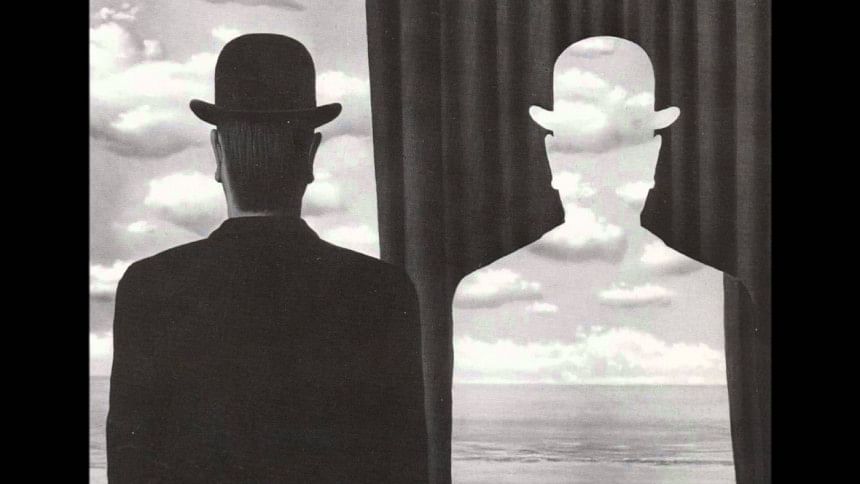Dualism is to everyone’s loss

To be a successful criminal (No! I am not opening a school), besides having 10 SIM cards (legally allowed for each operator), an oily body to slip away if caught, a foul mouth, an arsenal of weapons, and liaison with uniformed ostads and informed murubbis, one must above all be extremely knowledgeable about the boundaries of a thana. A criminal is largely safe for a considerable period if the crime can be committed with his legs straddled on two different thanas. Initially (a period that could mean weeks), neither government office will record a case. What fun!
Bizarrely, it is usual practice in Bangladesh for a police station to refuse a tax-paying citizen his right to record a case on the muchki hashi pretext that the incident occurred beyond the physical boundaries of its jurisdiction. Technically qualified criminals do just that, choose an ubhoy sankat point, knowing fully well that neither PS will accept a complaint against their wrongdoings. The situation, besides affording crucial time and space for the alleged criminal to make a getaway, allows also the crime scene to be significantly disturbed.
If such a directive is in the police code of practice, it has to be changed for the convenience of the people. For the sake of justice, formalities and paperwork maybe kept to a minimum. Police chiefs repeatedly assure us of people-oriented service to maintain law and order. Any police station should readily receive a complaint, pending investigation. The police station receiving the complaint can always engage the other station (of occurrence). They are all members of the same force.
Unfortunately, such dissonance appears in different sectors of governance, where the prime mover is unwillingness to shoulder responsibility. Often a minister will indicate that the action has to be taken by another ministry. If the other ministry steps up the gear, then his ministry will render full cooperation. Ministers are occasionally seen publicly passing the buck. While we understand that there possibly is a standing protocol among ministries, but such a public stance reflects a lack of cohesion, however subtle. Statements should manifest the government's position, not the terms of reference of each ministry. One can imagine a smirk on the guilty beneficiary of such dilly-dallying.
The opposite is also true when a deserving individual is kept waiting, or a legitimate project is shelved, for months because the concerned ministries and offices do not know how to, or do not want to, coordinate. It is unfair to attribute such deliberate game-playing to "system loss" because, as they say in Bangla, there is ghost in the mustard.
When Road Transport and Bridges Minister, and Awami League General Secretary Obaidul Quader, a politician matured by trials and tribulations, says that all war criminals will be brought to justice, we recognise that as the collective viewpoint of the government and his party. From any of the several under-construction projects, he could have unshouldered the same obligation to the law, the foreign, the home and the Muktijuddho ministries, or any other, before concluding that his ministry was ready to provide transportation of the criminals from the airport to the lockup.
Our hospitals suffer too from similar predicament. Emergency, especially accident victims, are turned away. It is not up to a patient to choose the location and timing of a serious illness. An accident by definition can occur anywhere and to anyone. Distraught friends and family are compelled to move a patient from one hospital to another, resulting often in the victim's death due mainly to delay.
Often enough, persons who fetch a patient to a hospital are questioned, detained, arrested, and charged with felony by the law enforcers. That is one reason why the kind-hearted and the hospitals are reluctant to get involved in a major case of injury or illness. By government order, however, all hospitals are now required to provide emergency services under any circumstances.
The wife is amazed, nay also puzzled, at the accolades showered regularly on her hubby by F&F for, of all the things in the world, his warmth and care, wit and pleasantries, soft speech and clean vocabulary. The husband, who is most eloquent at home with an occasional "Hmm…" and a "Huh?" is rather boisterous among his friends and maybe some family. "Bhabi, you are so lucky!" Was she married to someone else? Such liveth (and survive) the Dr Jekyll and Mr Hyde in our society.
There is gain for the man to behave so in public. It builds his image, as much as that portrayed by his clothing, hairstyle and gait. At home he hardly cares. The saying, "chicken in the house tastes no more than daal" does extend beyond the couple's dying (pun intended) affection for each other.
Above I explain the split personality from a man's perspective because I belong to that species. But, to be fair, women are no less prone to maintaining different faces at home and away. There lies the peril in domestic relationship. The yelling mode of speech at home goes through a voice makeover when she is working, shopping, or socialising. Please, okkaayy, thank you…
One major reason for increase in divorce is dualism. After the short-lived honeymoon days are over, when one discovers at home a person different from the one before the wedding, for some the shock is much greater than the social insults that shall be hurled after a separation. You cannot really live forever with someone you do not want to live with, simple. The solution lies in not camouflaging oneself to create an artificial impression. Be yourself starting today.
Dr Nizamuddin Ahmed is a practising architect, a Commonwealth Scholar and a Fellow, a Baden-Powell Fellow Scout Leader, and a Major Donor Rotarian.

 For all latest news, follow The Daily Star's Google News channel.
For all latest news, follow The Daily Star's Google News channel. 



Comments